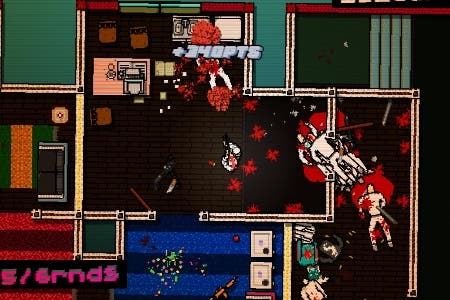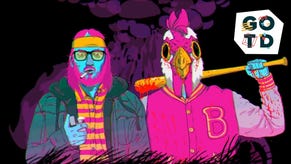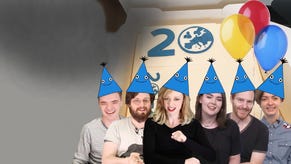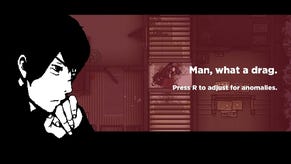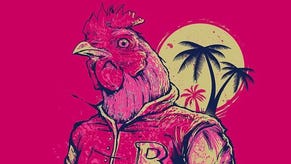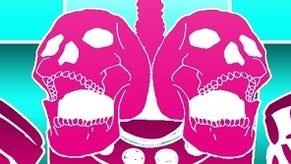The creators of Hotline Miami on inspiration, storytelling and upcoming DLC
Cactus was "afraid of the story not being confusing enough".
We here at Eurogamer are quite fond of a little game called Hotline Miami. Once described as a "top-down f***-'em-up," it follows the exploits of an animal mask-wearing man cruising the neon streets of Miami with a thirst for blood.
As Tom Bramwell attested to in his 10/10 Hotline Miami review, he was left wanting more, so he instantly started the game up again upon completing it. I too was left with Hotline Miami withdrawals, but instead of simply wanting to play it again (which I also did), I wanted to learn more about it, so I decided to have a little Skype chat with its creators Jonatan "Cactus" Söderström and Dennis Wedin. Here's how that went down:
How's the game been doing, sales-wise?
Söderström: Pretty okay.
Can you share sales figures?
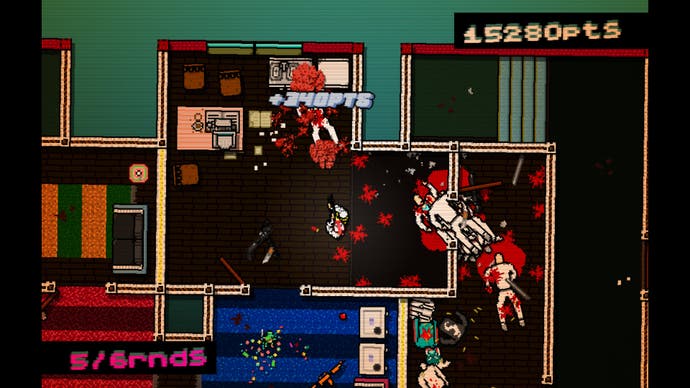
Söderström: I'm not sure. Because we have a publisher now I'm not sure what their stance is with transparency.
Are you at least making your money back? Do you think you'll be able to fund a new game?
Söderström: We will probably be able to make a new game.
You've made a lot of games before, but this seems to be the first one that's had a lot of mainstream attention. Why do you think that is? Did you know that that would happen?
Söderström: I think it was a surprise to us both that the game did so well. We didn't really try to make a game for everyone, so we didn't know what to expect when we launched it.
Wedin: But we were really happy with the game. We were always hoping people would like it.
At what point did you realise you were really onto something with this?
Söderström: I guess it was when it got Game of the Show at Rezzed.
Wedin: Yeah, I think so too.
"I was more afraid of the story not being confusing enough."
Jonatan "Cactus" Söderström, co-founder, Dennaton Games
So why Miami? Have either of you been to Miami before?
Söderström: I haven't.
Wedin: Nope.
Söderström: I think Wedin has an answer to this.
Wedin: I think it has to do with a documentary called Cocaine Cowboys. It's about drug trading in Miami and - was it the early 90s?
Söderström: No, it was the late 70s to mid 80s, or something like that.
Wedin: So Jonatan saw the documentary and got very inspired to use that as a setting for the game because of all the violence and stuff like that. So I think that's why it's in Miami.
Söderström: We had some inspiration from Miami Vice when we designed some of the characters in the game as well.
The game is often compared to Nicolas Winding Refn's Drive. Was that a big inspiration to you, or was that purely coincidental?
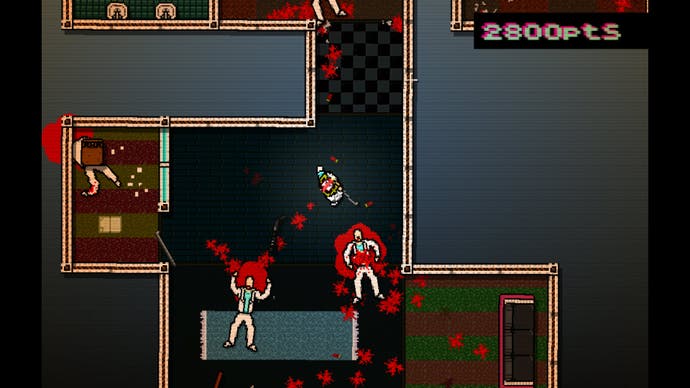
Wedin: No, that was a really big inspiration for the game. The music and feel to the story - not much dialogue and how the violence was portrayed in the movie - were a big inspiration. And we didn't try to hide it either.
I also noticed a lot of parallels to No More Heroes. They both have assassin main characters, a lot of grotesque violence, a neon colour palette, and a lot of surreal meta-humour where you don't really know what's real. Was that also an inspiration?
Söderström: Not to me. I haven't played No More Heroes, but I played Killer 7 and I liked that a lot. I'm not sure if there was any direct inspiration from that in the game.
Wedin: No, I don't think so. I played them also and I loved the games, but I don't think I used it as inspiration for the things in this game.
So why animal masks?
Wedin: At the beginning - before the game was picked up by Devolver - we were talking about doing a kind of Kick-Ass kind of scenario where you're like this superhero and we talked about how you would disguise yourself if you didn't have that much money and couldn't do Batman suits and stuff like that, so we decided we were just going to have some kind of mask. I decided to just start doing a lot of animal masks because I think they are kind of scary. I have some really bad childhood memories from The Wind and the Willows and stuff like that. Things with animals acting like humans.
Why do all the animal masks have human names attached to them?
Wedin: It's like when he puts on the mask he becomes someone else. He becomes Carl or Rufus, so he doesn't have to feel responsible or feel guilt for what he's doing because it was Carl who did it. I think that's why we gave them names.
Söderström: And it looks cool.
Wedin: Yeah, it looks cool, too. It adds to the whole surreal thing.
The narrative of the game is very surreal. There's been a lot of discussion about what actually happens, even if you unlock the secret ending (which I did on my second playthrough). Were you afraid of confusing people too much?
"I think we're going to do quite a big project [for DLC]. It will probably be about as long as the full game, so probably we'll charge something for it."
Jonatan "Cactus" Söderström, co-founder, Dennaton Games
Söderström: I was more afraid of the story not being confusing enough. We wanted the story to spawn a discussion about what the game was about and what was real and what's not real. By the end, when we launched the game, I really felt like we knew exactly what everything was and we weren't sure if that was going to shine through too much, so I was really glad when people were discussing it on the Steam forums.
It wasn't intentional. We wanted to throw some red herrings into the game to get people to not necessarily see what was going to happen at the end until it comes. Also, they can really put a personal feel to the story, where they fill in the pieces in-between with their own stuff and their own interests. What kind of character is he? Is he a murderer or just misunderstood? We really wanted to make the game personal for everyone. That's why we won't tell what we thought about the story. We'll let the players decide.
You've mentioned you may have some new content coming out. Can you talk about that at all?
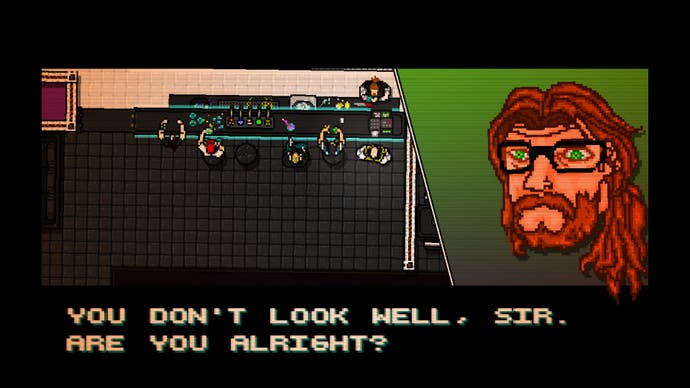
Söderström: We don't want to reveal too much, but it will probably have more playable characters than the first game did. And a couple of different stories and angles.
Wedin: A lot of of people have been asking about a map editor to build their own stages, so we're looking at if it's possible to do that. I think it would be really cool to let people do their own stages.
Looking at the story DLC, will those cost anything or be smaller, free updates?
Söderström: I think we're going to do quite a big project. It will probably be about as long as the full game, so probably we'll charge something for it. It will be like a sequel kind of, but building on the story.
Do you have any idea when it will be ready?
Söderström: It's hard to say right now, but we're hoping since we have the game engine done and we just need to add more to it, it shouldn't take as long as it's taken for the first game to be made. Because there were a lot of difficult design decision that sort of made the game take some time to make. In the beginning we weren't really expecting to make a long game, so we were kind of slowly working on it the first couple of months, but we hope it would take no longer than four or five months to make the sequel, but we're not sure at this point.
You've mentioned before that you're in talks with Sony to maybe make a Vita/PS3 version of Hotline Miami. How far along are these talks? Does this sound likely?
Söderström: I can't say much about Sony because I frankly don't know how likely it is. Maybe 50/50.
Have you been in talks with any other console publishers to bring the game to other systems?
Söderström: We've talked a bit about porting to smart phones as well. Smart phones would be very tricky though as the game needs very precise controls. So I have no idea if that is an actual option.
